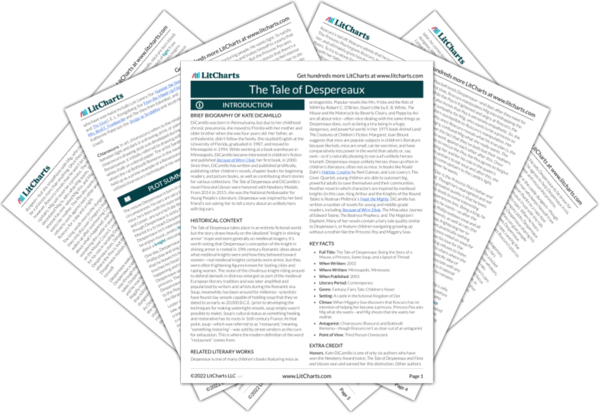AI ToolsNew
Tools to make learning and teaching easier
|
Previous
Chapter 36
|
The Tale of Despereaux: Chapter 37 Summary & Analysis |
Next
Chapter 38
|


Upgrade to unlock the analysis and theme tracking for all of The Tale of DespereauxThe Tale of Despereaux!
Get LitCharts A+